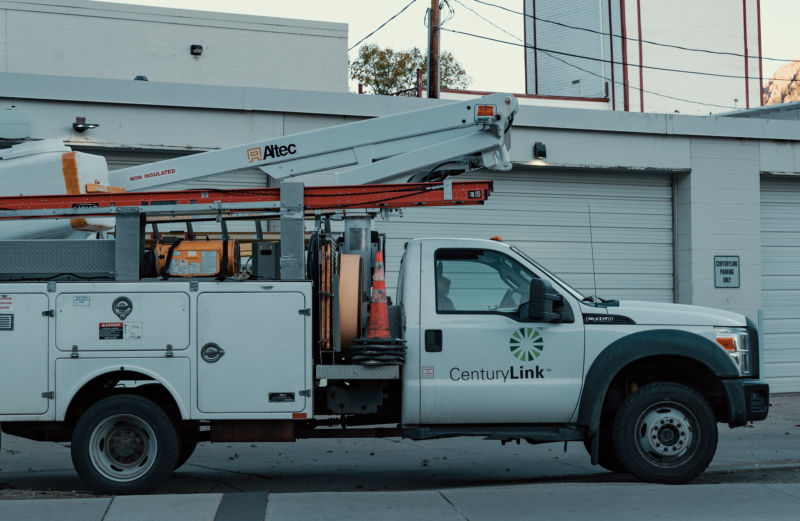
CenturyLink and Frontier Communications have apparently failed to meet broadband-deployment requirements in numerous states where they are receiving government funding to expand their networks in rural areas.
CenturyLink notified the Federal Communications Commission that it “may not have reached the deployment milestone” in 23 states and that it hit the latest deadline in only 10 states.
Frontier similarly notified the FCC that it “may not have met” the requirements in 13 states. Frontier met or exceeded the requirement in 16 other states.
Under program rules, the ISPs were required to bring Internet access to 80 percent of funded locations by the end of 2019 and must hit 100 percent by the end of 2020. While CenturyLink and Frontier apparently failed to hit the 80 percent requirement in a bunch of states, they could meet the final goal in time if they ramp up construction.
When carriers default on interim buildout deadlines, the FCC can “initiate reporting obligations and withholding of a percentage of the eligible telecommunication carrier’s total monthly high-cost support.”
We asked the FCC if it plans punishment or other action for CenturyLink and Frontier, and we will update this article if we get a response.
CenturyLink and Frontier were among 10 ISPs that accepted funding in the FCC’s 2015 Connect America Fund auction in exchange for promises to deploy Internet service with speeds of at least 10Mbps downstream and 1Mbps upstream. CenturyLink is receiving $505.7 million in annual support for six years to deploy service to 1,174,142 homes and businesses in 33 states.
Frontier was originally slated to receive $283.4 million annually for six years to bring access to 659,587 homes and businesses in 28 states. That was later expanded to 774,000 locations in 29 states. Frontier’s entire footprint is 29 states, so it’s receiving government funding in all of them.
The Connect America Fund, like the FCC’s other universal-service programs, is paid for by Americans through fees on their phone bills.
As we wrote Monday, Frontier is reportedly planning to file for bankruptcy within two months.
Exact shortfall still to be determined
The findings that CenturyLink and Frontier missed the 80 percent deadlines were based on preliminary data, so the companies are still working to confirm whether they missed the targets in each state where the data shows a problem.
For CenturyLink, the states where the ISP seemingly failed to meet the deadline are Alabama, Arkansas, Colorado, Iowa, Idaho, Illinois, Indiana, Kansas, Louisiana, Michigan, Minnesota, Missouri, Montana, Nebraska, New Mexico, North Dakota, Ohio, Oregon, South Dakota, Utah, Virginia, Washington, and Wisconsin.
Frontier said it apparently didn’t meet the requirements in Arizona, California, Illinois, Iowa, Minnesota, New Mexico, New York, Ohio, Oregon, Utah, Washington, Wisconsin, and West Virginia. Frontier said it already received a waiver from the FCC in Arizona, New Mexico, and Utah “due to unforeseeable hurdles with tribal permitting and rights of way.”
Frontier said its deployment is over 76 percent in California, Iowa, New York, Oregon, and West Virginia. Because it’s less than 5 percent below the requirement, no new compliance measures would be triggered in those states.
Frontier has deployed to more than 70 percent of locations in the other states, but that’s not enough to avoid FCC action. Across all of its 29 states, Frontier said it has deployed to 596,000 of the 774,000 required locations, or about 77 percent.
CenturyLink’s FCC filing did not say how far the ISP is from meeting its requirements in each state, but it said the company has deployed to nearly 900,000 locations, just under 77 percent of the required total.
After reviewing and validating the data, Frontier and CenturyLink are scheduled to provide the FCC with final numbers by March 1.
Both Frontier and CenturyLink have histories of mistreating customers. Frontier’s frequent outages and long repair times triggered an investigation and settlement in Minnesota, and New York state officials are also investigating Frontier. Other Frontier problems include giant overcharges, large cancellation fees, and a policy requiring customers to pay for router rentals even when they have purchased their own router.
In December, CenturyLink agreed to pay a $6.1 million penalty after Washington state regulators found that the company failed to disclose fees that raised actual prices well above advertised rates. CenturyLink was also forced to stop charging an “Internet Cost Recovery Fee” in the state. The company still faces a class-action lawsuit involving customers from multiple states alleging billing fraud.